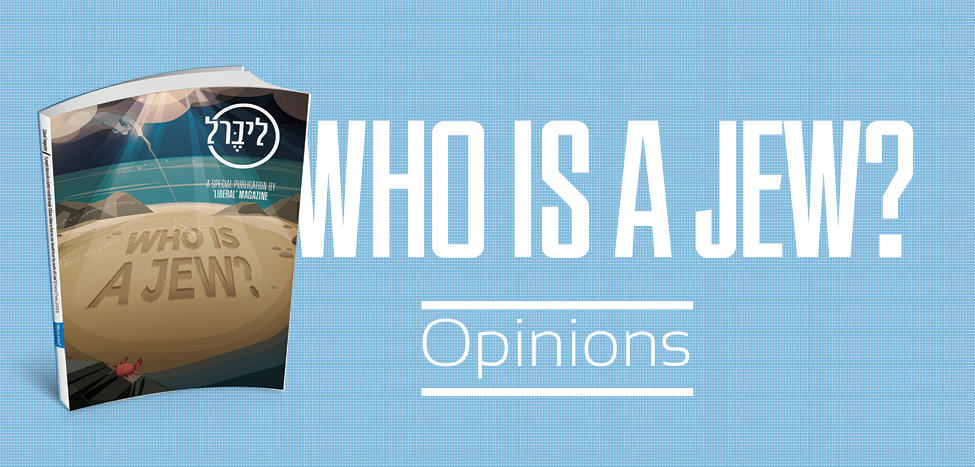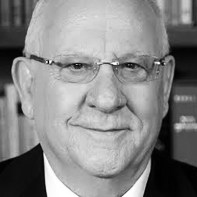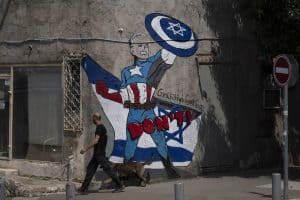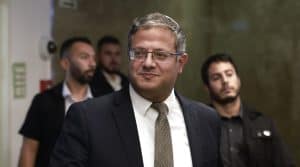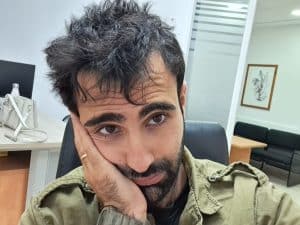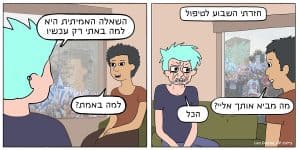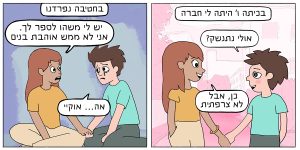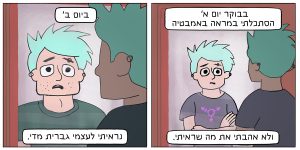The question “Who is a Jew?” may be as old as the Jewish people itself. However, it seems to me that many variations of it only came into being here, in our Jewish state. Here we not only ask ourselves “Who is a Jew?” as an internal religious question, but also as a national question seeking to separate – or determine if it is possible to separate – the national element from the religious element.
A decade after the establishment of the State, our first prime minister, David Ben-Gurion, asked fifty of Israel’s sages if it was possible to register the child of a Jewish father and a non-Jewish mother as Jewish. The range of answers stretched from those who saw Orthodox Jewish law or halakha as the only arbiter of the question, to those who saw the answer only subject to the state’s secular judicial powers. The question is ancient, but it lives and is rejuvenated here every day, and I am happy it is still alive within us.
After the destruction of the Second Temple Rabbi Johanan Ben Zakkai made the choice to give up Jerusalem and prefer Yavne and its sages, to save the Torah and give up the Land of Israel. This was the decision to give up land for the heavenly, to give up the concrete for the symbolic. This solution impressively and inspirationally preserved dozens of generations of Jews in various disparate diasporas, but the Zionist decision was to reverse the course of that rabbinic authority. Zionism chose to return to the land, to return as a nation to the abandoned nationalism and see it as the essence of Jewish identity; to move from the soul to the body and back.
Jewish identity is not just a religious definition, but also a national definition in its broadest sense – common history, common fate, a shared dream and a shared language.
Are these things indeed a factor in the definition of Judaism? Here, I believe, our State of Israel innovates. Yes, that same state with the traffic jams and bureaucracy and income tax, but mostly with the good heart and volunteerism and love above all – national innovation in the definition of Judaism itself: partnership in the Jewish-Israeli fate is in fact part of belonging to Judaism in the broad sense, belonging to what we now call Israeliness. This isn’t belonging in the sense of halakha, but rather in a common fate or a Jewish-Israeli destiny – if you will.
Will we refuse a person who seeks to tie his fate to ours not for advantages or marginal interests, but because he sees himself as part of the vision of a nation that returns to its land, to independence, and in that land establishes a Jewish and democratic state, one that respects its minorities, and seeks to become a social and economic center for the entire world? Will we reject him? Will we turn him away? Exclude him from that wonderful historic right to be part of the Israeliness we are building and creating? Heaven forefend!
We originate from those who sought to draw in and love all of Creation. Tying the fate of one person of the world with our own Israeli fate, similarly to that which tied the biblical Ruth to her mother-in-law, touches us and moves us. This tying also saves us from fossilization, from hubris, from the sin of pride in our strength and the might of our hand, and from forgetting those who have otherwise been spurned.
For all these reasons, accepting the outsider is our chance, saving us from ourselves. It is our miracle. Just as standing water becomes stagnant, so too a society or nation that is not truly and deeply engaged with others can lose its vitality and fall into dangerous stagnation.
Along with opening our hearts, we know that this uniting of fates is not just part of contemporary Israel, but also of historical Israel. It is part of the chain of customs and traditions passed down to us over generations of mother to daughter and father to son, no less than the Hebrew language, our new-ancient tongue with its treasures of delight and nostalgia.
I leave you with a poem by Abba Kovner, leader of the WWII Vilna Ghetto partisan fighters, who became a renowned poet of the Hebrew language. The poem encompasses the entire spectrum of possibilities and wonderment at the question “Who is a Jew” and “What is a Jew”:
יהודי הוא מי שרוצה להיות יהודי / ומי שהוא יהודי בְעַל כָרחו יהודי
הוא מי שמאמין באמונה שלֵ מה / ויהודי הוא שמחזיק באמונה שסועה
יהודי הוא מי שמניח טלית ותפילין / ויהודי הוא מי שזרק טלית ותפילין
יהודי הוא מי שקשה לו להיות יהודי / ומי שמתקשה להיות דבר אחר
יהודי הוא מי שנולד לאם יהודייה / ויהודי הוא מי שאינו יודע היכן קבר אמו
יהודי הוא מי שהתיר עצמו מכבלים / ויהודי הוא מי שאסר עצמו בכבלים
יהודי הוא מי שהוריש לאנושות את הגעפילטע פיש במקורם / ואת ספר התנ"ך בתרגום
יהודי הוא מי שכותב מימין לשמאל / ומי שהשמאל לעולם דוחה אותו לימין
יהודי הוא שמעגל יצירתו נתגלם באותיות מרֻבעות / ומי שקיומו עדיין בבחינת רִבּועַ המעגל
יהודי הוא מי שאינו נבדל משאר בני אֻמות העולם / מלבד מה שהוא בדול מהם
יהודי הוא מי שהאחרים שונאים אותו בחשאי / ויהודי הוא מי ששונא את עצמו בראש חוצות
יהודי הוא מי שמסר את נפשו להביא את העולם לביתו / ויהודי הוא מי שחַיָב למסֹר את נפשו על ביתו הוא
יהודי הוא מי שיודע לשאֹל / ויהודי הוא מי שאינו יודע לשאֹל עד שפותחים לו.
Reuven (Ruvi) Rivlin, President of Israel


